9 most interesting castles in Scotland
Categories: Design and Architecture | Europe
By Pictolic https://pictolic.com/article/9-most-interesting-castles-in-scotland.htmlToday there are 3,000 castles in Scotland. They are not as pretentious as the German ones, but no less significant from a cultural and historical point of view.
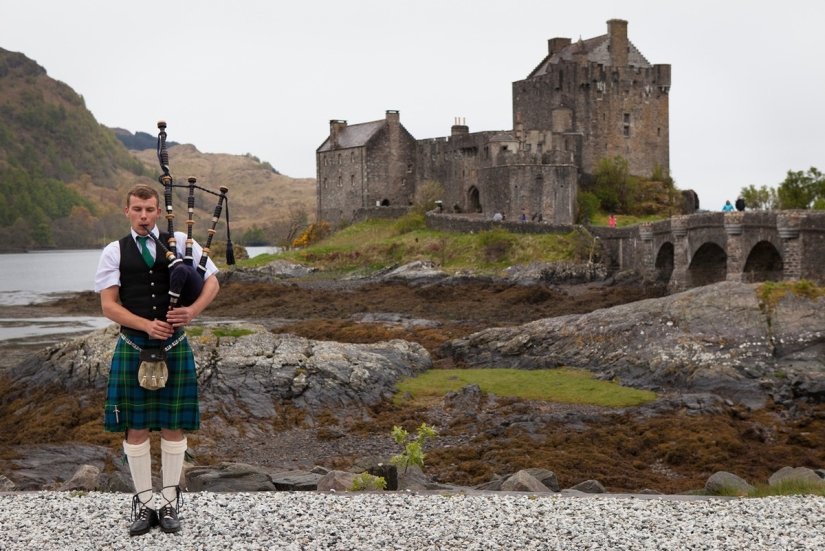
Gloomy Scottish castles with impregnable fortress walls served, first of all, for the defense of their owners. It is also worth noting that most of the medieval buildings have lost their former power and are ruins. Traveling around the country, every now and then you come across this or that castle, at the sight of which chapters from novels about knights are recalled.
The ruins of the castle date back to the XIII—XVI centuries, although this castle was built on the site of an early medieval fortification. Founded in the 13th century, Arkart Castle played a major role in the Wars of Scottish Independence in the 14th century. Subsequently, the castle became royal and was captured several times by the Earls of Ross from the MacDonald clan.
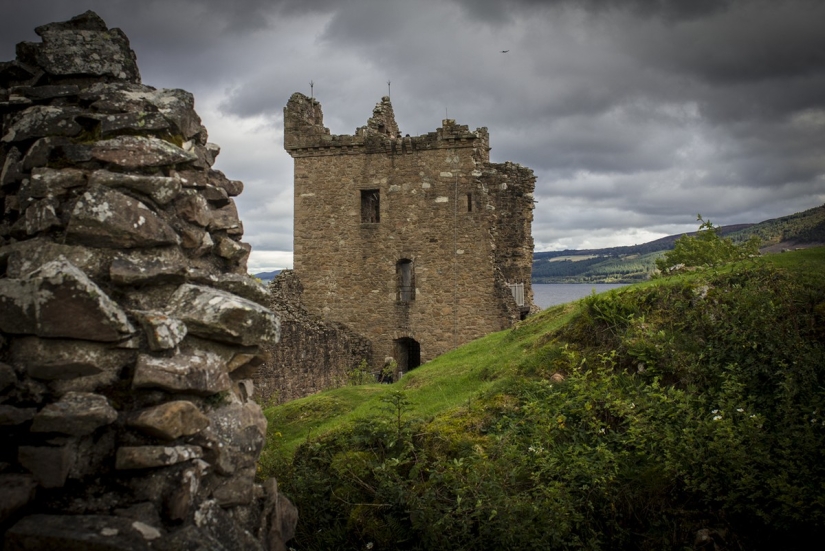
In 1509, the castle was granted to the Grant clan, although the MacDonald clan still claimed ownership of the castle. Despite the subsequent raids, the castle was fortified and fell into disrepair only in the middle of the XVII century. In 1692, when a detachment of Jacobites besieged the castle, it was partially blown up and subsequently destroyed. In the XX century, the castle was transferred to the care of the state and opened to the public: Arkart is one of the most visited castles in Scotland.
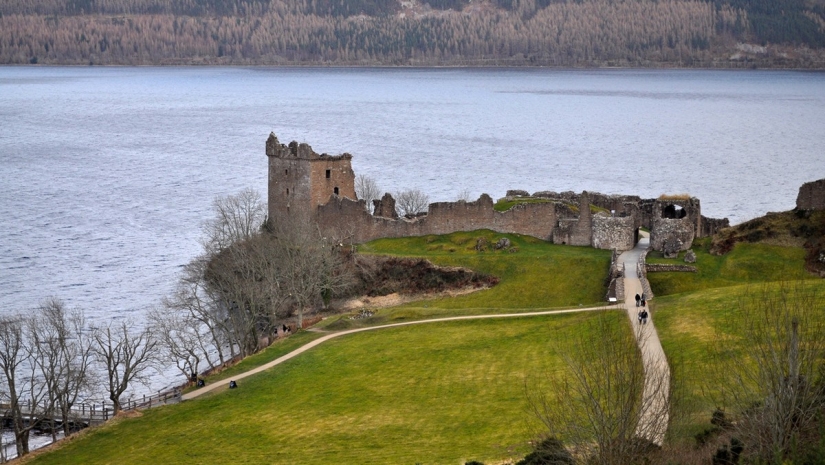
The castle, located on a promontory overlooking Loch Ness, is one of the largest in Scotland. The entrance to the castle, located on the west side, was protected by a moat and a drawbridge. In addition, the castle was surrounded by a double stone fence from the shore. In the Northern Fence or Lower Courtyard of the castle, there are many almost intact buildings, including a gatehouse, and a five-story Grant Tower in the northern part of the castle. In the area of the Southern Fence or the Upper Courtyard of the castle, which was located on an elevation, only the ruins of earlier buildings remained.
More than half of the travelers who visit Arkart Castle are attracted by the world-famous legend about a mythical creature that lives in the waters of Loch Ness.
Slains Castle is located on the shore of the North Sea. From the time of its construction at the end of the XVI century until 1913 it served as the residence of the Earls of Errol.
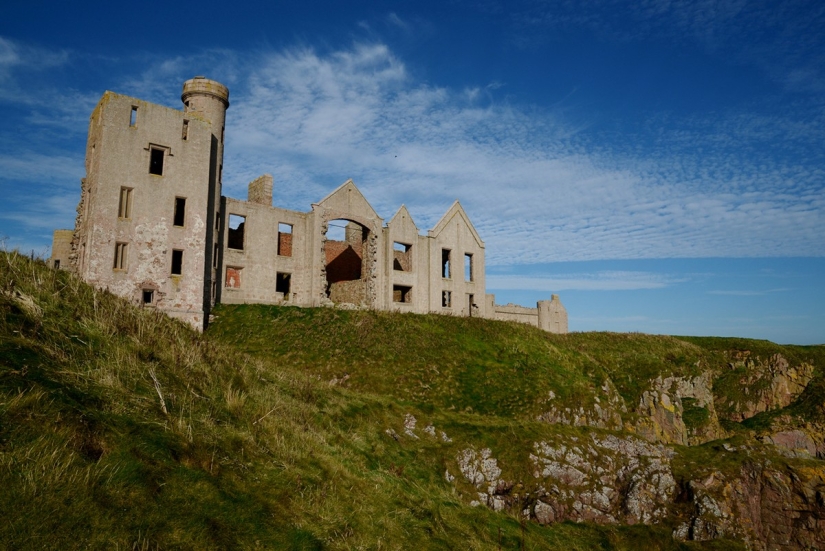
In the Middle Ages, the Earls of Errol settled in the "old castle" of Slains, which stood not far from the current one. The arrogant 9th Earl came into conflict with King James VI, who in 1594 ordered the destruction of the ancient building, subjecting it to cannon fire. Subsequently, the counts rebuilt the existing residence near the ruins of the old castle.
The wedding of the 18th Earl of Errol with Elizabeth Fitzclarence, the illegitimate daughter of William IV from an affair with Dorothy Jordan, required him to bring the dilapidated ancestral residence into proper shape. In 1837, the Aberdeen architect John Smith rebuilt Slains in accordance with the romantic ideas of the time about ancient Scottish castles.
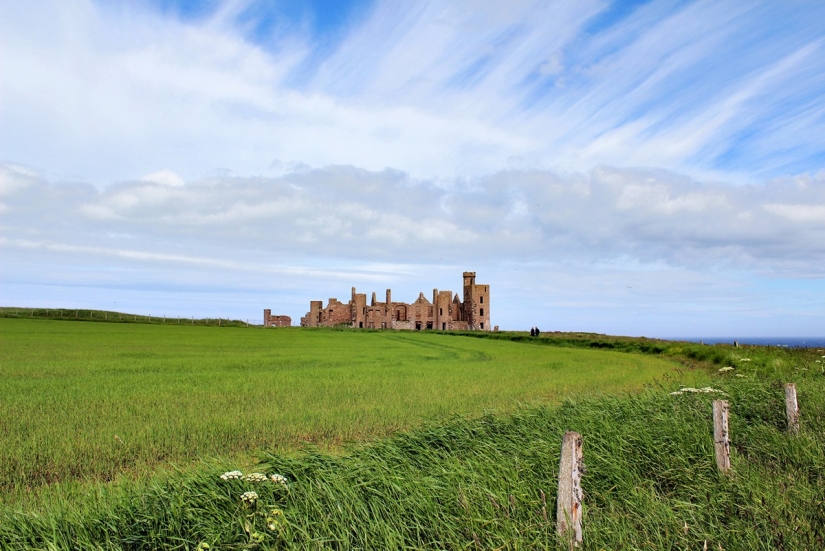
Many famous people visited the Earls of Errol, including Samuel Johnson and his friend Boswell (1773) and the Irish writer Bram Stoker (1895), who was working on the Gothic novel Dracula at that time.
In 1913, the bankrupt 20th Earl of Errol sold the castle to the owner of the Ellerman Lines transport company, who, in order not to pay property tax, ordered the roof of the castle to be dismantled. Since then, the structure has acquired the appearance of ruins. None of the castle restoration projects (the last of which was approved by the government in 2007) it has not been implemented yet.
Dunnottar Castle is located on a high rocky cliff that rises on the North Sea coast, to the south of the Scottish city of Aberdeen. Dunnottar went down in the history of the country as an impregnable fortress that repeatedly repelled enemy attacks. No one could get here unnoticed, since all the surrounding slopes and the coast were perfectly visible from the castle walls. The only way up was along a winding path through a gate made in the rock.
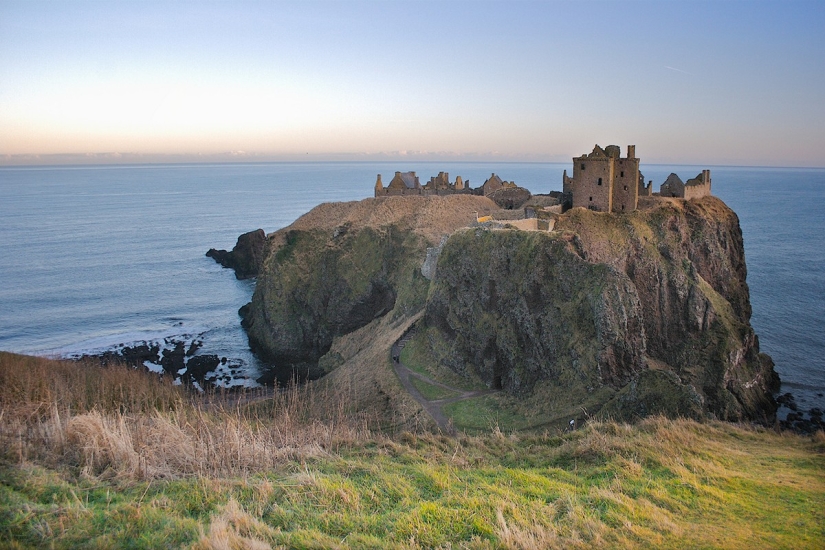
It is assumed that the name of the castle came from the ancient Pictish language. The Picts had the word "dun", meaning "fortress" or "fortification". It is noteworthy that stone walls and picturesque coastal landscapes have been filmed in feature films more than once.
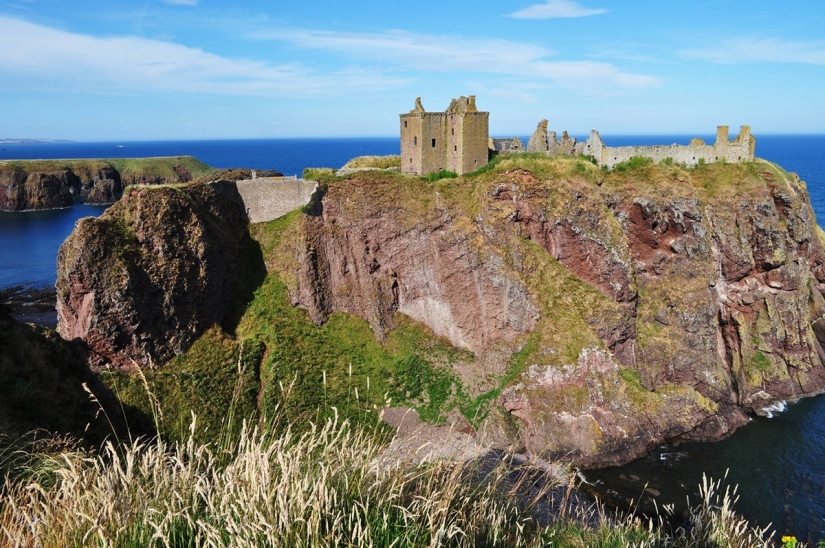
Dunnottar played a prominent role in the history of Scotland until the Jacobite Rising of the 18th century because of its strategic position and defensive strength. Dunnottar is best known as the place where the "Honours of Scotland", the jewels of the Scottish crown, were hidden from the invasion of Oliver Cromwell's army in the 17th century. The Keith property from the 14th century and the residence of Count Marischal Dunnottar fell into disrepair after the last count lost his titles after taking part in the Jacobite uprising in 1715.
Nowadays Dunnottar Castle is in a dilapidated state and is the property of the Cowdray family. It is open to visitors, very popular with tourists and is considered hardly the most visited attraction in Scotland.
This small and cozy castle is surrounded by a beautiful botanical garden. It was built in the sixteenth century and was the Barnett family estate until the middle of the last century. According to local legend, a real ghost lives in one of the rooms of the castle, because there are quite a lot of tourists here.
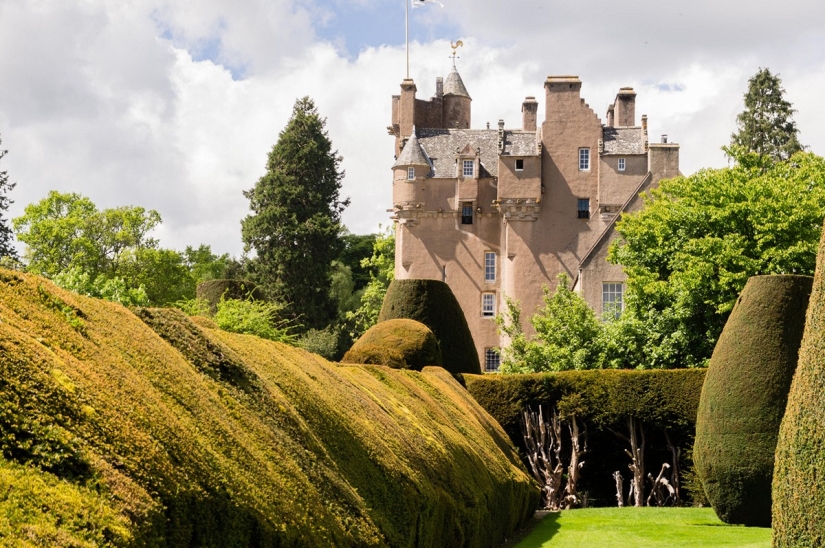
The land on which the castle is located was granted by King Robert the Bruce to the Barnett family in 1323. The modern castle was founded in 1553. Crates remained the family estate of the Barnett family until 1951, when it turned into a museum.
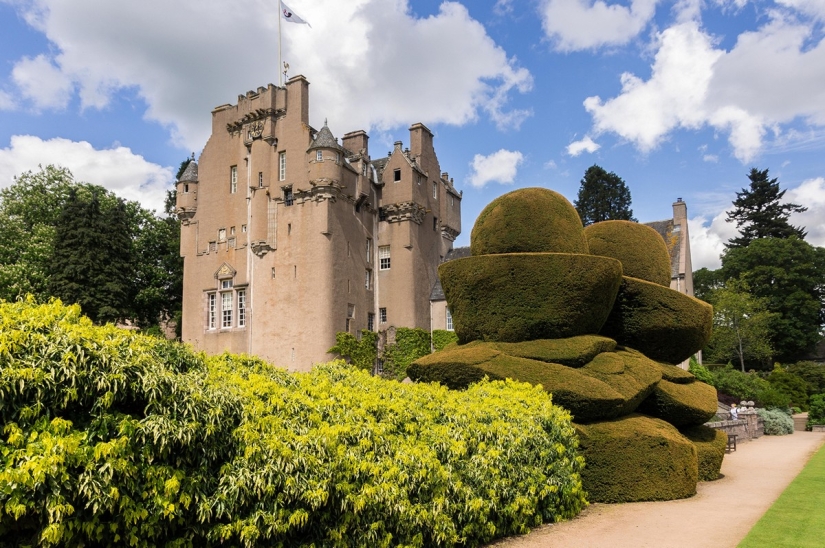
The total area of Crates' property is 530 acres, 4 acres of which is a botanical garden with gravel paths bordered by flower borders, well-trimmed bushes and trees.
This Scottish castle, which is located next to the village of Glams, in the county of Angus, in Scotland. Previously, the fortress was considered a royal hunting lodge. The castle is now the residence of the Bowes-Lyon family, the Earls of Strathmore and Kinghorn.
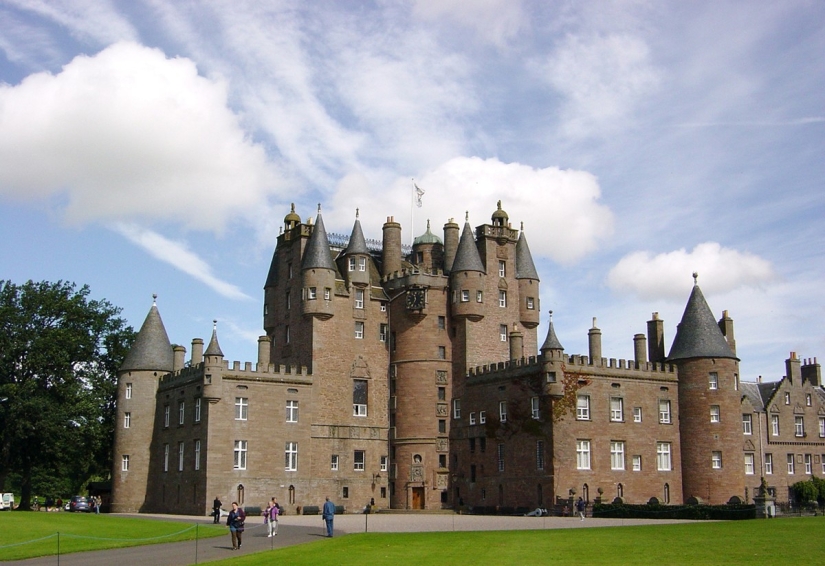
The castle was built in 1376. In the XV century, the building was significantly rebuilt, towers were added, but the biggest changes occurred in the XVII-XVIII centuries, when the castle was no longer used as a defensive structure.
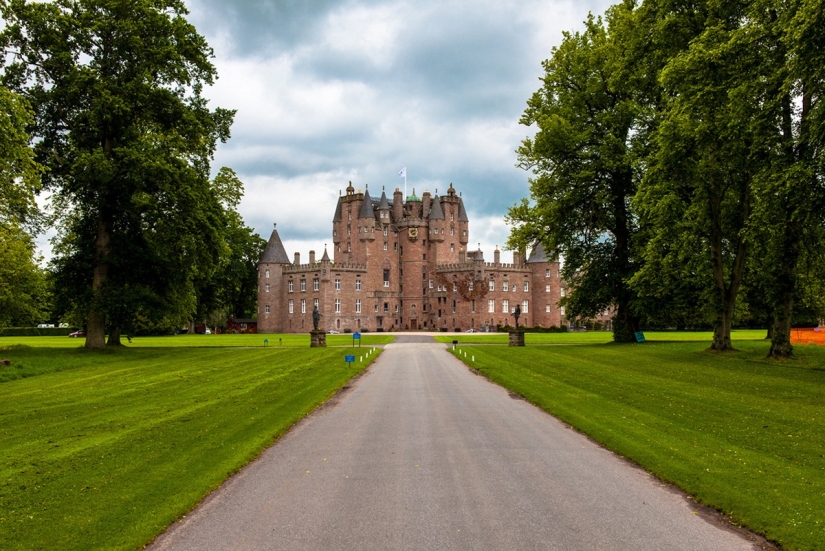
The childhood of Queen Elizabeth II's mother, Elizabeth Bowes-Lyon, was spent in Glamis Castle; the queen's younger sister, Princess Margaret, was also born here. The castle now belongs to the Queen's great-nephew, the Earl of Strathmore, and is partially open to the public. In one wing of the castle there is a museum, the other wing serves as a dwelling for the owners of the castle.
Drum Castle, located in the Aberdeenshire district, is considered the oldest residential castle in Scotland. And its tower, dating from the XIII century, is one of the three most ancient Scottish towers that have survived to the present day without any significant transformations. The remaining parts of the castle were built in the XVII century and later.
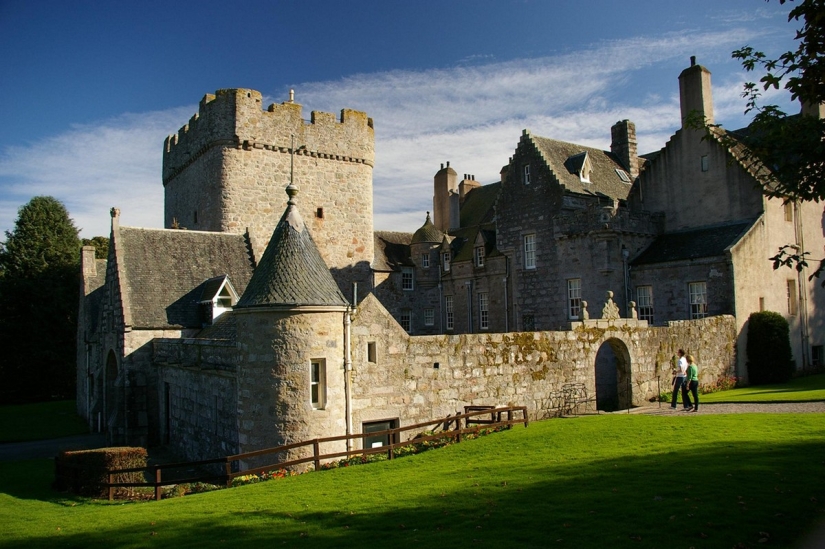
The history of this castle is inextricably linked with the history of the Irwin clan, which had friendly relations with the Bruce clan. One of the Irvines, William, was a squire under Robert de Bruce, the Scottish king, who granted Drum, along with the territories adjacent to it, to his loyal subject.
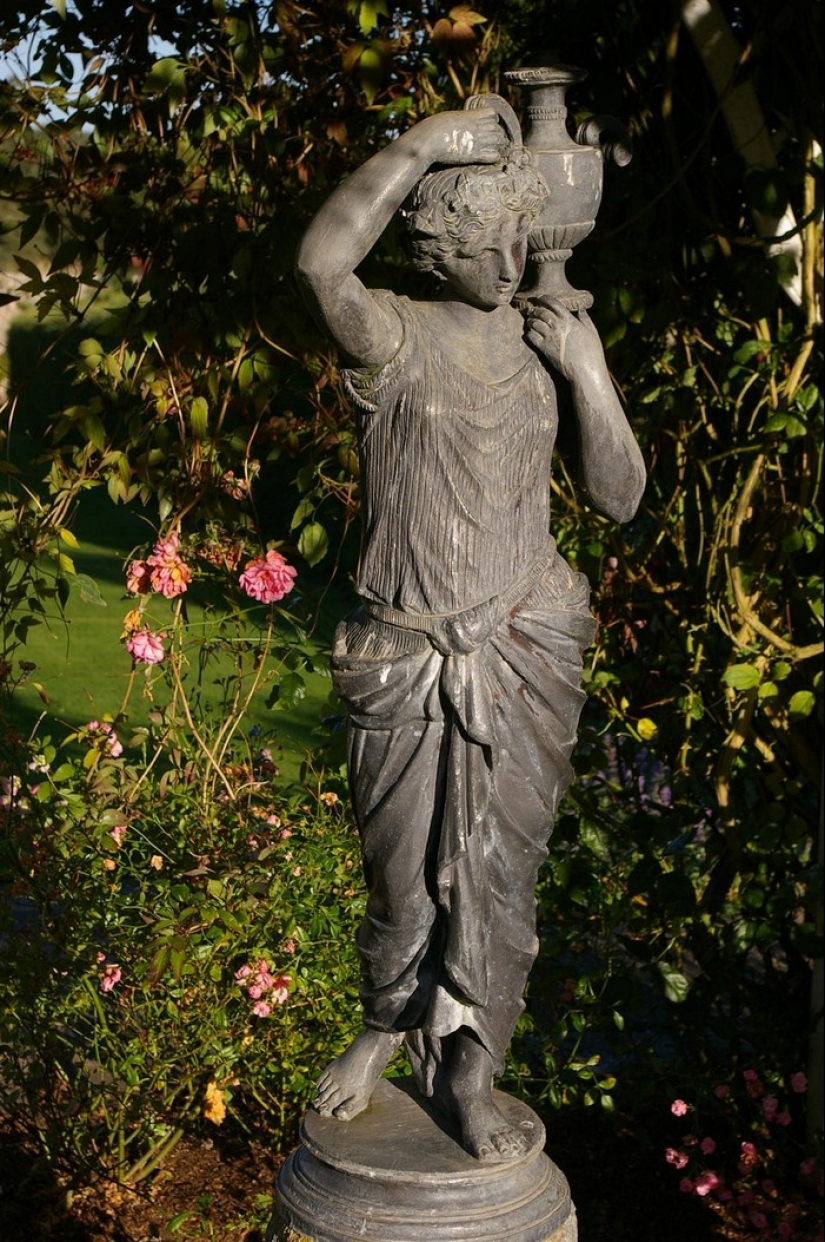
In 1975, the last, 24th laird of the Drama, Henry Quentin Forbes Irwin, died, and according to his will, the castle came under the management of the National Trust Fund of Scotland, engaged in the preservation of historical monuments.
During the summer months, Dram is open to tourists. They are invited to explore the classic interiors of the castle, as well as stroll around it among the luxurious gardens. The local rose garden deserves special attention, where there is a wonderful collection of roses planted in different historical eras.
Eilean Donan Castle is one of the most romantic castles in Scotland. It is located on a rocky island lying in the Loch Duich fjord in Scotland and is famous for its heather honey and interesting history. The name of the castle comes from the name of the hermit monk Donan, who lived on the island in the 7th century.
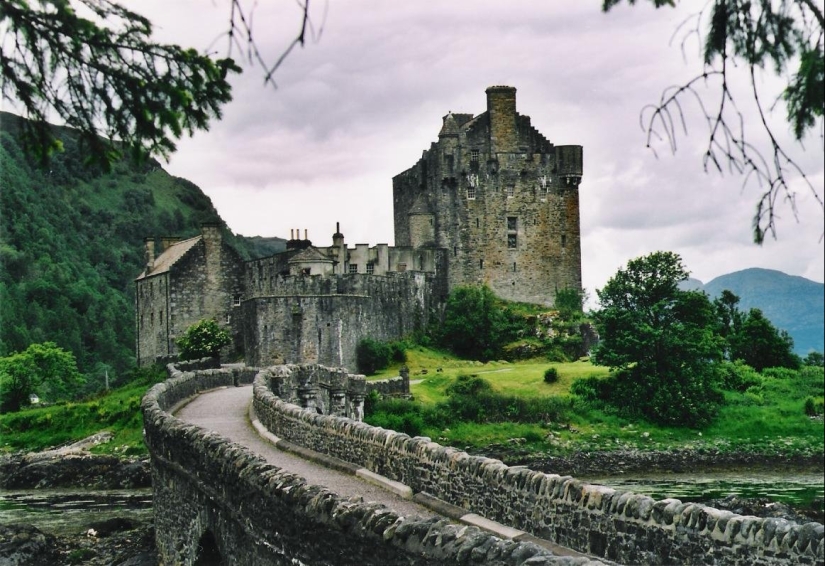
In the XIII century, during the reign of King Alexander II, the first fortress was built on the island. In 1263, Alexander III gave the castle to Colin Fitzgerald (members of the Mackenzie clan consider him their ancestor) as a reward for valor during the Battle of Largs. In this battle, the Norwegian King Haakon IV was defeated and as a result, the Hebrides and the Isle of Man were annexed to Scotland. From that time, Eilean-Donan remained the most important fortress of Mackenzie until 1719, when the castle was destroyed.
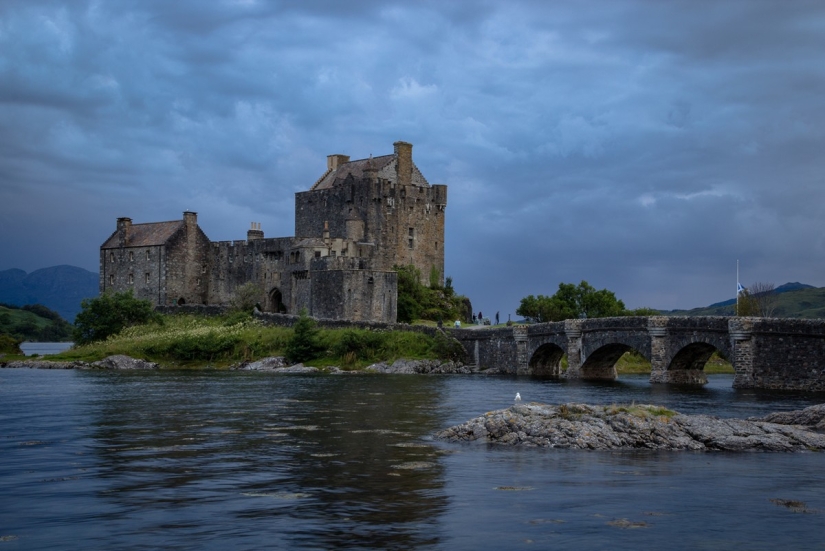
In 1911 John McCree-Gilstrap bought the castle and began a restoration project. After 20 years, the project is finished. In 1983, the McCree clan started a charity. To this day, the McCree clan lives in six rooms set aside for them in the castle.
Balmoral Castle is located on the banks of the River Dee, in the Aberdeenshire region. Built in 1852 by architect William Smith on behalf of Prince Albert in the Old Scottish Gothic style, made of granite. Balmoral has been the Scottish private residence of the British royal family since it was bought for Queen Victoria by Prince Albert in 1852. The castle is the private property of the BCS, which means that the income from the property does not go to the treasury.
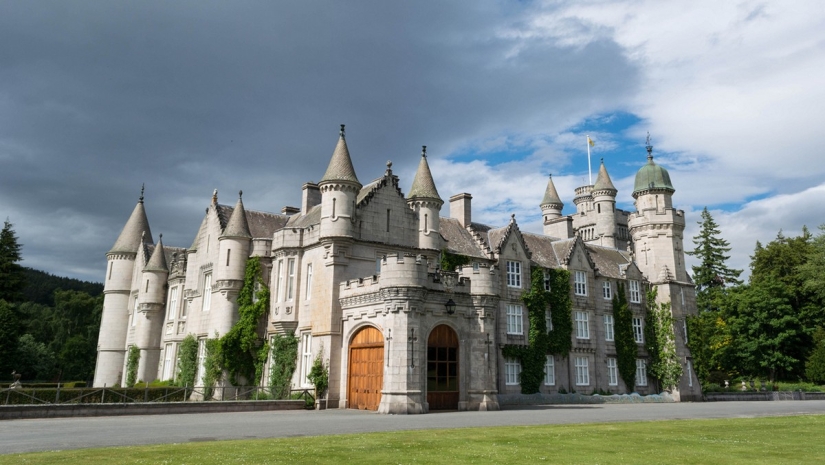
The British royal family began to come to Aberdeenshire regularly from 1852. Now the family members spend about three months in Balmoral every year, coming here in August. On September 8, 2022, the British Queen Elizabeth II died in the castle.
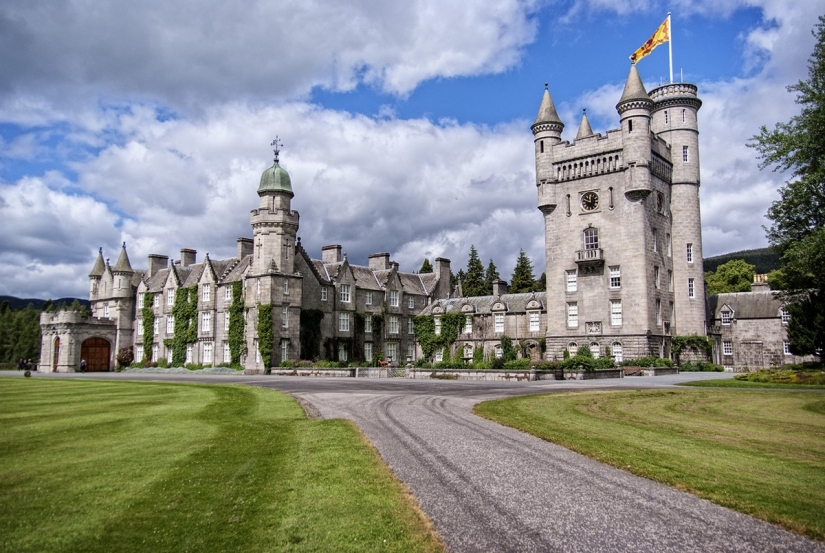
The Balmoral estate has been expanded by successive members of the royal family and currently covers an area of approximately 50,000 acres (20,000 hectares). It is a functioning estate comprising moorland, forestry and farmland, as well as managed herds of deer, mountain cattle, sheep and ponies.
The local gardens and dance hall are open to visitors from April to the end of July. In the hall, for example, exhibitions of paintings, royal clothes, silverware and porcelain are organized. In addition, restaurants and cafes are located near the walls of the castle. It serves English tea from Victorian-style porcelain cups.
Edinburgh Castle is the main castle—fortress of Scotland, located on the top of Castle Hill in the heart of the capital - old Edinburgh. It dominates all the surroundings, as it organically grows from an 80-meter elevation, which is an extinct volcano.
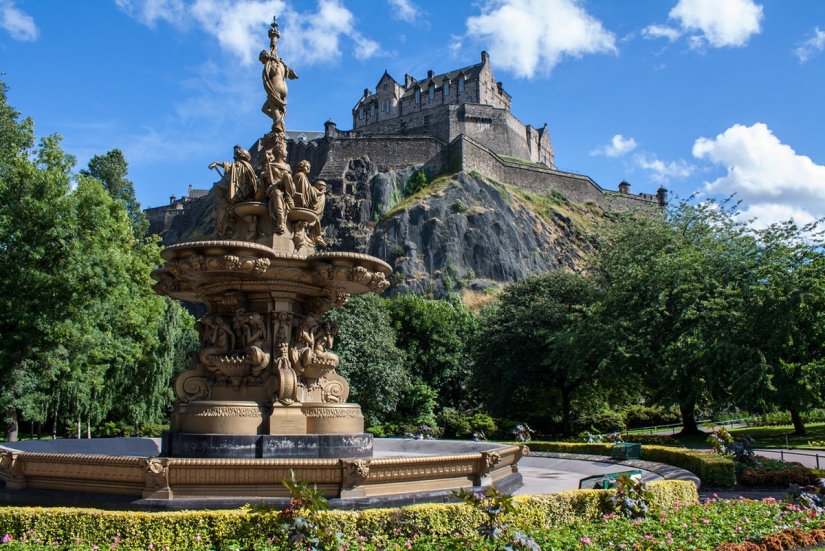
Exactly when Edinburgh Castle was founded remains unknown. Its history goes back centuries – back to 600 AD, when on top of the Castle Rock, around which Edinburgh later grew, there was a fortress Din Eidlin (Din Eidyn).
The founder of the castle is considered to be the Northubrian king Edwin, who lived in the VII century. The castle was named in his honor – Edwinburg, which was later renamed Edinburgh. According to historical data, in the struggle for the independence of Scotland, the castle changed its owners four times, but at the same time it was never taken by storm, the victory was won by the enemy only by cunning.
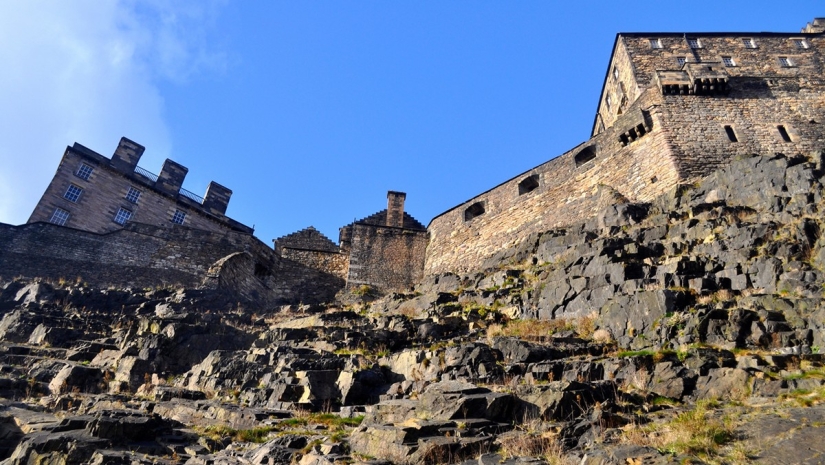
The current castle building dates back to the XII century, and was built by King David I in honor of his mother, known as St. Margaret of Scotland. She died in 1093 and was subsequently canonized. King David, who made Edinburgh his capital, ruled most of the Kingdom of Scotland, expanding his possessions through marriage.
Recent articles

There are many places in the world where only the chosen ones can be. The cities of Mecca and Medina in Saudi Arabia are well known ...

This collection of photos will clearly please the little inner perfectionist who lives in each of us. It doesn't matter how much ...

If you don't feel good about the donut you ate for lunch, relax - it can get worse ... At least you didn't eat the ...